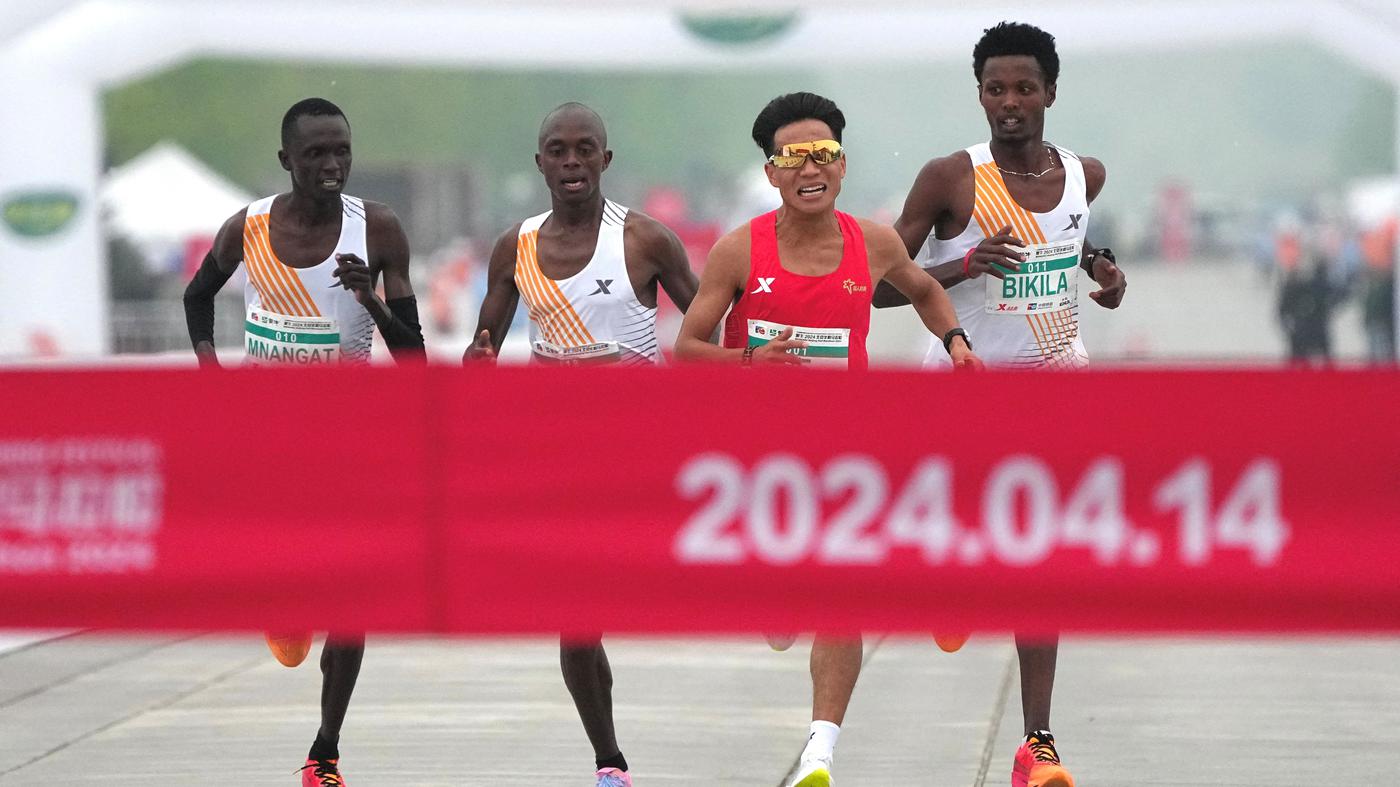There is a pacemaker in medicine. It ensures a stable heart rate and accordingly prolongs life. Then there is the pacemaker in sports, also known as pacemaker. This in turn ensures a stable speed and helps significantly in shortening best times.
The sobering thing about the pacemaker’s job is that he is clearly intended for a supporting role; The pacemaker is only intended to help the fastest person to be even faster shortly before the finish.
But the work order has its pitfalls. Especially if the pacemaker or pacemakers are faster than those who were intended for the main role. This happened last weekend at the half marathon in the Chinese capital Beijing.
He Jie, a national hero in China
The main role belonged to a national hero, He Jie. The 25-year-old is a big name in China. He won the Asian Games last year and is also the national record holder in the marathon distance with 2:06.57 hours.
The organizers of the Beijing Half Marathon were keen to ensure that the hero crossed the finish line first in the race in the Chinese capital in a reasonable time. They therefore hired three pacemakers just for him – with success. He Jie won the race in 63:44 minutes.
The problem was that he ran after his three pacers, panting, until shortly before the finish, when they suddenly reduced their speed and signaled to him several times that he should overtake them.
I wasn’t here to compete normally.
Willy Mnangatrunner from Kenya
There is great outrage in the running scene. It was obvious: the half marathon in Beijing was not won by the fastest runner, but by the one who was apparently chosen as the winner by the organizers – before the starting signal was fired.
Willy Mnangat, one of the pacemakers, couldn’t understand the excitement. Immediately after the finish, the Kenyan told Chinese media that he let He win “because he is my friend.” The two know each other from training camps in Kenya. As the alleged fraud became increasingly widespread, Mnangat reacted with incomprehension. “I wasn’t here to compete normally,” he told Britain’s BBC. His job was to support his friend He.
In fact, Mnangat and the other two pacemakers – Robert Keter from Kenya and the Ethiopian Dejene Hailu – did not officially enter the race as such. “I don’t know why I wasn’t labeled as a pacemaker on my jersey,” Mnangat said.
The scene was hard to beat in terms of absurdity.
Philipp Pfliegerformer top German runner
“The absurdity of the scene was hard to beat,” said former top German runner Philipp Pflieger to the Tagesspiegel. “The pacers almost had to carry He Jie to the finish line.”
Pflieger can understand the outcry. But he also points out that “official pacemakers can have their fees reduced if they win a race.” However, as is often stated in writing, that is exactly what they are usually not supposed to do – even if they could.
Question marks remain regarding the half marathon in Beijing because the pacemakers were officially listed as normal starters. A failure on the part of the organizer? Or was there even a deal during the race.
“That too,” says Pflieger, “can never be completely ruled out in running.” The local authorities in China now want to investigate the case. “The integrity of sport is our greatest asset,” the World Athletics Association said in this regard. It is quite possible that this was trampled on in Beijing.
